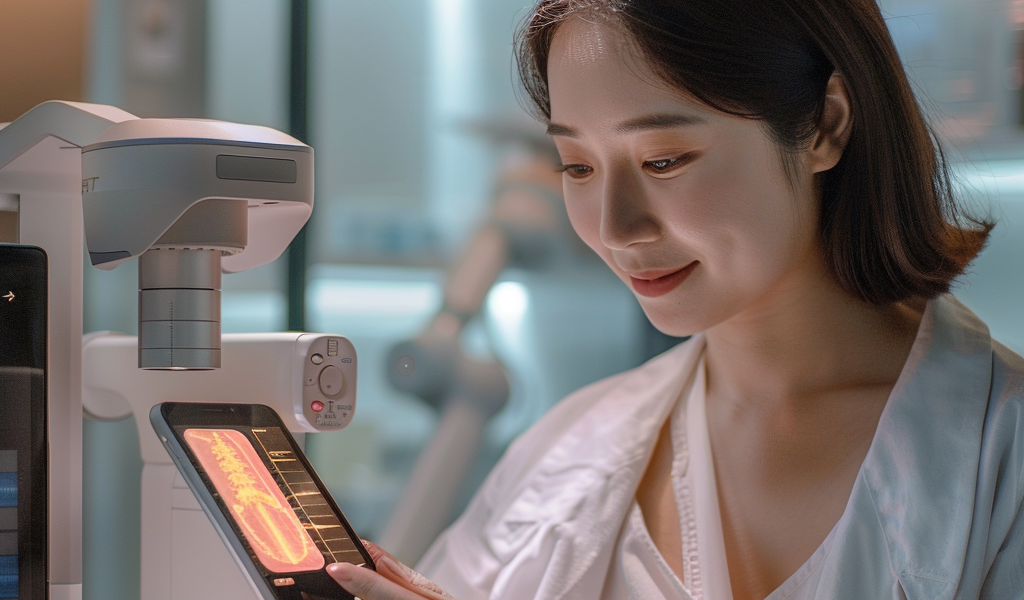In a groundbreaking development, a team of medical professionals in China has created an innovative artificial intelligence-based infrared thermography (AI-IRT) system aimed at enhancing breast cancer screening. This new technology allows users to assess their cancer risk conveniently through a smartphone application connected to infrared cameras.
The research team, hailing from the prestigious Peking Union Medical College Hospital (PUMCH) in Beijing, has designed the AI-IRT system to integrate an infrared camera, advanced AI algorithms, and a comprehensive big-data platform. This integration empowers individuals to capture thermal images of their breasts using the infrared cameras linked to their smartphones. Once the images are taken, they can be uploaded to a dedicated app where the AI algorithm processes the data, ultimately providing users with insights into their cancer risk levels.
With breast cancer being a significant health concern among women in China, the researchers are optimistic that this system will offer a more accessible, accurate, and cost-effective pre-clinical screening option. In 2022 alone, China reported approximately 357,200 new breast cancer cases, making it the second most common cancer among women, alongside 75,000 fatalities attributed to the disease.
Sun Qiang, a leading breast physician at PUMCH and a key member of the research team, emphasized the importance of early screening and diagnosis in the fight against breast cancer. He noted that while traditional methods such as ultrasound, mammography, and magnetic resonance imaging (MRI) are effective, they often come with drawbacks such as invasiveness, exposure to radiation, and higher costs.
The AI-IRT system stands out as a large-scale pre-clinical screening method that is non-invasive, radiation-free, and quick, making it a suitable alternative for many women. The technology is particularly beneficial for screening dense breast tissue, which is more prevalent among Asian women.
Zhou Yidong, the director of the breast surgery department at PUMCH, highlighted the significance of the AI-IRT system as a tailored solution for breast cancer screening among Chinese women. The researchers envision that this technology could soon be available for at-home use and in community health centers. This would eliminate the need for scheduling hospital appointments and the often lengthy wait times associated with clinical screenings.
Wang Xuefei, an attending physician in the breast surgery department and another core member of the research initiative, acknowledged the need for further validation studies to confirm the research findings. However, she expressed confidence in the substantial potential of the AI-IRT system to revolutionize breast cancer screening practices.
The team has already completed the technology transfer process for the AI-IRT system, marking a significant step toward making this innovative screening tool available to the public. As breast cancer continues to pose a serious health risk for women, advancements like the AI-IRT system represent a crucial leap forward in early detection and prevention efforts.
As the healthcare landscape evolves, the integration of artificial intelligence and mobile technology into medical screening processes is expected to play a vital role in improving patient outcomes and accessibility to essential health services. The AI-IRT system exemplifies how technology can be harnessed to tackle pressing health issues, paving the way for a future where women can take charge of their health with greater ease and confidence.





